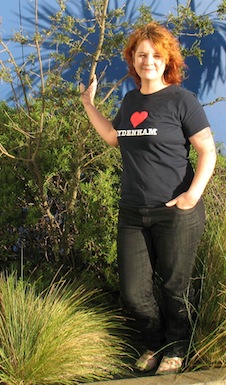
“Coming back to study after working for years was daunting! I'd been working in conservation and I knew that I wanted to study Botany and probably Ecology … choosing Otago was easy because there are few places in New Zealand where you can study Botany. But coming back to study, having to learn how to learn all over again … it was harder than I expected, but it was also better than I expected.”
Serra Kilduff completed a BSc in Botany with a minor in Geology in 2008. Since then she's been working at Plant Variety Research, a very small offshoot of intellectual Property New Zealand. She examines new varieties of plants that have been developed by horticulturists – often over a period of many years. The plant breeders have invested huge amounts of effort into the development of new varieties, and want to protect their intellectual property particularly if it's of commercial interest.
“We examine new varieties, growing them alongside comparative varieties which have sets of known parameters', to compare against for distinctness, uniform growth within the trial plants, and stability within the variety– so each one grown is reliably the same distinct variety.”
Serra really enjoys her work, although she has a hankering for paleo-botany and misses the nomadic existence she used to lead, as well as research and field work (“Now I'm mostly stuck in the same field – out at Lincoln….”). Plants are still the favourite thing for Serra because: “Plants don't cry or smell funny when you work on them!”
Serra uses the skills she learned at Otago every single day. She really values the strong emphasis on taxonomy (categorising things by genus/species/type) and biosystematics in the Botany department.
“Once you've learned those taxonomic identification skills, you can apply them to anything. Those keys are very worthwhile, especially in MY work, but I think because they can be applied almost anywhere they're valuable all over the place. Botany is really hands-on; you learn a wide range of skills that are applicable in a range of fields”.